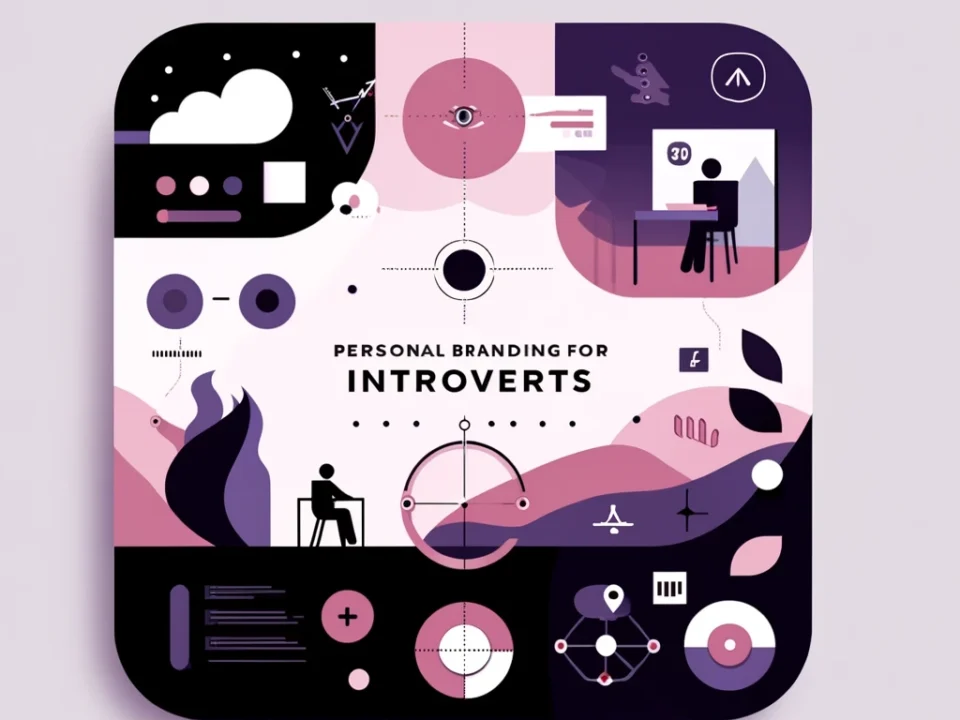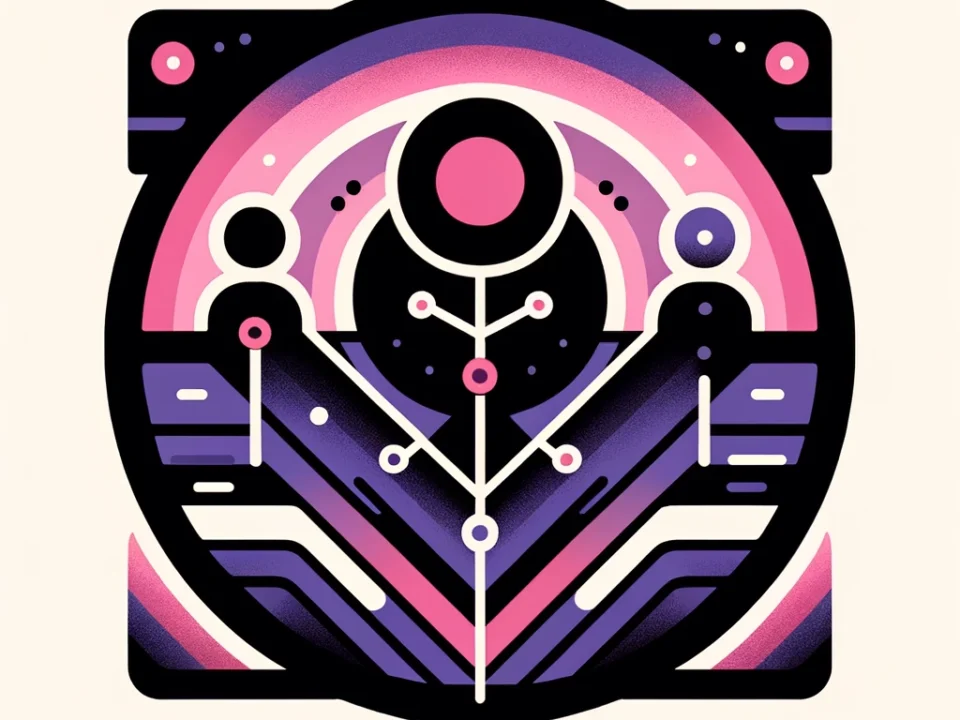Have you ever thought about why some people in your field suddenly became famous across the country? The media pays a lot of attention to these experts, they give keynote speeches at the best conferences, and they have the most important clients. Are these folks really smarter than us? Or do they know a secret way to build their personal brand that the rest of us don’t?
This group of experts is mostly made up of people like you and me. A lot of them will even be the first to admit that they are not exactly experts in their fields. It took time for them to get better at writing. They were not meant to be public speakers. Most of them were not born with a lot of charisma either.
Instead, they learned about personal branding the hard way, by making mistakes along the way. That means they all went their own way and tried many tools and methods along the way that did not work.
Why should you read this article?
If you are a service provider, expert, or executive and are unsure of how to begin building your personal brand, this article is for you. This is also a great resource for the marketing directors of professional services firms who are responsible for increasing brand awareness.
You can follow the same steps, whether you are a one-person operation or part of a Fortune 100 company. There is one catch, though. No matter what your position is, one thing is certain: you need to be an expert in your field. There’s no faking expert knowledge.
Starting with Personal Branding Examples
By examining a handful of examples, we may observe the concept of personal branding in action. The goal of personal branding examples for professionals is to raise awareness of and trust in their expertise in a particular field.
A professional architect who focuses on creating contemporary bridges can be worth considering for employment. By speaking at industry conferences, they might boost their profile and get more exposure. They have the opportunity to demonstrate their expertise and share some of the innovative ideas they have used in their projects at these gatherings.
A public relations professional could assist this architect network with influential journalists and other professionals in the field, increasing their visibility and potentially leading to further commissions. An individual may land an interview with a prominent magazine and appearances on multiple podcasts with the help of a public relations expert.
This expert can further establish their reputation by contributing to their company’s blog on a regular basis with thought leadership pieces. After that, they can use LinkedIn to share the content with their personal networks. More people will be able to see their blog entries if they optimise them for search engines. Only time will allow this group to expand.
After going through this example, you must have noticed a pattern. A strategy for personal branding.
What Is a Personal Branding Strategy?
One thing you need is a personal branding strategy if you want to take your career and reputation to the next level. It shows where you are now and how visible you want to be in the future.
Following that, it provides a comprehensive overview of all the tactics, tools, and information you will need to accomplish your goal, along with a daily content calendar to keep you motivated. With a strategy in place, you can eliminate guesswork from your search for Expertise and concentrate on actually finding it.
In today’s world, no personal branding strategy would be complete without content marketing. You can build your personal brand with the help of the skills and tools discussed in this roadmap, which are actually used in content marketing.
Advantages of having a strong, well-known personal brand
A well-known personal brand gives you more benefits than you might think of. It makes you look like an expert and gives you a presence everywhere.
At the most basic level, a well-known personal brand:
- Gives you more confidence and a sense of power.
You can be seen if you have an active online profile. Experts who can be seen make more money.
- Has an effect on the people who are listening.
Makes an impression on your listeners. Using your personal brand as an opening, you can influence your audience to do things that will help you out in the end. An individual’s personal brand is a powerful asset that may shape public perception of their company in any way they see fit.
- Partners get more out of it.
Enhances the worth of collaborations. When you have a well-known personal brand, people look up to you and your methods in business and social relationships.
- Is the best tool ever for advertising a brand.
People are known for their personal names more than the branch they opened. People like Bill Gates, Elon Musk, and Jeff Bezos are well-known examples of this saying. When you sell your brand based on how you’ve built your personal brand, people will choose your brand over you.
- Increases the chances of getting good clients.
People who create authority and dominance over the digital market get good clients. Having a strong personal brand can help you get the best clients, which can lead to better work and more chances.
The 7 Critical Tools for Personal Branding
Here are the seven critical tools you will need to include in your personal branding strategy:
1. A book
You will need to write a book about your area of expertise, whether you do it yourself or hire a ghostwriter. A book is a great way to build credibility. There are two ways to publish your book: traditionally or on your own. Self-published books give you more freedom because you can set the price or give them away for free. Traditional published books can give you instant credibility. You will also need to market it, because even big-name publishers expect their authors to do most of the work. Do not feel rushed to start reading a book. Make it your goal to make one within the next two years, if not sooner.
2. Speaking engagements
An individual’s reputation and personal brand can be enhanced through public speaking. The first step is to secure a podium, as audiences have an innate tendency to believe anyone who does.
3. A website
Emphasise your bio page if you are an employee of a bigger company. Your credentials should be presented in a way that makes it clear that you are an expert in your field. Here are a few things it might include:
- Detailed personal bio
- Academic degrees
- Certifications
- Awards
- Publications
- Presentations
- Important projects
- Associations
- Affiliations
- Speaking videos
A personal website should be considered once your reputation starts to grow on a regional or national level. Make use of this site to advertise your speaking engagements and books.
4. A blog platform
A blog is a must-have for any expert. It’s the most accessible way to demonstrate your expertise. Additionally, it is a simple way to begin attracting a dedicated fan base. And when you optimise your posts using search engine optimisation (SEO) principles, you unlock a floodgate of potential customers who will discover you through online searches. A blog is an essential tool if you want to spread your wisdom quickly and widely. Either build a separate blog or embed it into your company’s website (the latter is better for search engine optimisation).
5. Email marketing service
If you want your blog to bring in a lot of new readers, email marketing is a great way to convert some of them into dedicated fans. You can encourage a specific percentage of your blog visitors to sign up for your mailing list by offering them the chance to download helpful educational materials like whitepapers and executive guides. Subsequently, you can provide these followers with a continual stream of complimentary instructional materials, along with extra promotions that enhance their involvement.
6. Search engine optimization (SEO)
You would be very mistaken to assume that search engine optimisation does not apply to your industry. An increasing number of organisations utilise online search engines annually to identify and evaluate service providers. However, what is even more pertinent to your ascent is the fact that contemporary business professionals invariably access Google when confronted with a complex business dilemma. Frequently, they conduct their own investigation into the issue and potential solutions prior to seeking professional assistance. In other circumstances, experts use this search to identify thought leaders in their respective fields. Establishing connections with people who are incredibly interested in the problems you solve through SEO serves as a mechanism. And without it, you would never meet 99 percent of them.
You will require one additional utility, which will significantly reduce the amount of time and effort required:
7. Media
A lot of people ask experts for bios, speaking samples, and pictures. Because of this, having those things ready to go at any time makes sense. Even better, put them on the bio page of your website so people who are interested can find them without you having to ask. If someone asks you for something at the last minute, you’ll be glad you have it on hand.
Of course, this list doesn’t cover everything. You can keep your audience interested with a lot of different tools. You can think of advertising, public relations, webinars (which are just a different way to speak in public), SlideShare, video, and web analytics, plus many more. As the results of your personal branding strategy start to show, you might want to try out some new tools and methods.
Summary/ Conclusion
There should be a thorough plan for a good personal branding strategy that lists the strategies, tools, and skills you need to get people to notice your personal brand. Once you have done all of these things, you need to learn about content marketing and carefully follow the roadmap to make your digital presence seem trustworthy.
A personal branding plan helps you do what you want to do in the most practical and determined way. A well-thought-out plan also trains you to care about your audience and makes you aware of your duty to build the brand for the sake of your brand’s success and your authority.
Building your personal brand is a big deal. To be in the spotlight of audiences, building a personal brand requires constant work, creating new material, and making improvements all the time. Your daily work should be enough to cover the work you need to do to become a personal brand. You’re taking the first step towards building a strong personal brand, which is what it needs. Always working hard and being honest.





